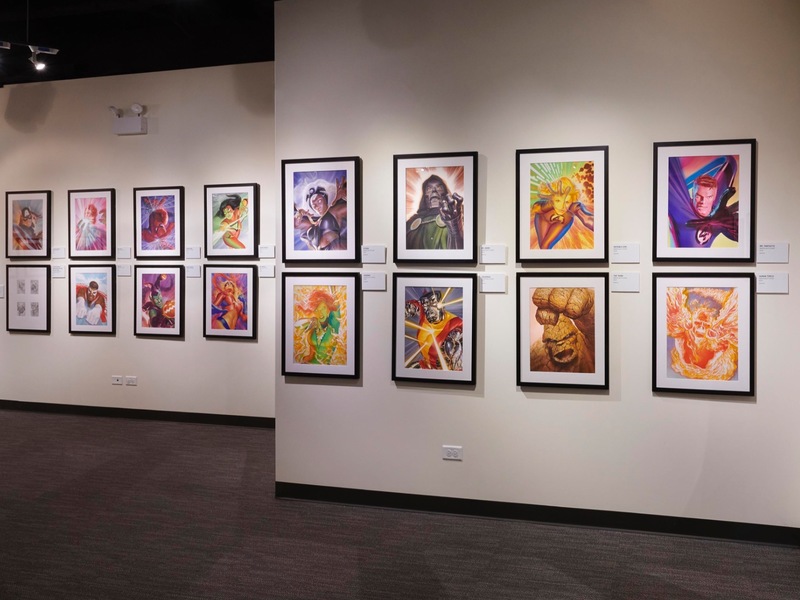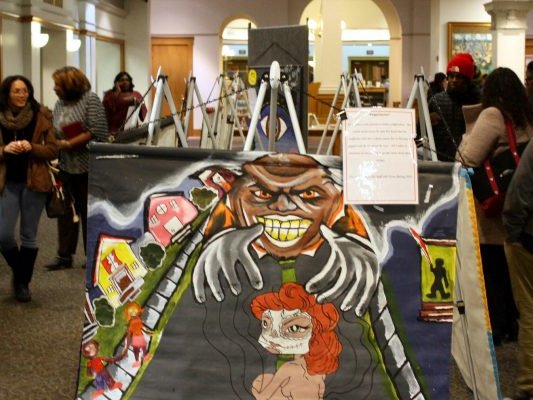Today, the Betty Brinn Children's Museum announced the debut of "Word Headquarters," a new feature exhibit highlighting literacy and its role in children's success in academics, as well as in life.
Opening Feb. 14, the new exhibit will be set up like a busy pretend global communications company where employees are hard at work learning to listen, share, read, writer, perform and create. Young visitors will be able to explore the fundamental components of words in the mechanical, kid-powered "production center," where hundreds of tiles featuring letters, sight words, prefixes, suffixes, symbols, punctuation and pictograms can be assembled into an endless number of words, sentences, songs, stories and more. Visitors will also be able to build messages at work stations, play a variety of word games, solve literacy problems or send messages using the exhibit's overhead pulley system.
Additional sections – such as the "corner office," "communications center" and "shipping and receiving area" – will expand on these and other literary concepts with interactive activities like a blog station, performance space, audio book station, literacy-themed trivia, rending centers and more.
Along the way, "Word Headquarters" will provide tips and tools for adults to help guide and develop children's critical literacy skills, such as print awareness, alphabet knowledge, phonetic and phonological awareness, visual and spoken vocabulary, narrative skills, recognition of genres, reading comprehension and others.
The exhibit's educational content – developed by the Betty Brinn Children's Museum in association with faculty from Marquette University, UWM and UW-Madison – reflects Wisconsin and national academic standards, as well as the developmental milestones established by the National Association for the Education of Young Children. It's also been specifically placed across from the Museum's "Be A Maker" communal workshop dedicated to technology, science, engineering and math education, creating an environment where literacy can be used in collaboration with other subjects.
"Reading enables children to have a brighter future by providing them a foundation upon which they can build for success," said John Kordsmeier, president of Northwestern Mutual Foundation, the exhibit's sponsor. "Children who are not proficient in reading at third grade are more likely to leave school before graduating than proficient readers. This new exhibit will allow children to advance and grow fundamental skills during a critical point in their educational development."
The exhibit will be free with museum admission.







